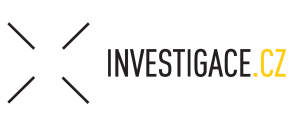“The public perception is that we only deal with corruption, which is not true. We also investigate cases in the social-educational field, where we deal with serious allegations that also affect children,” says Zuzana Dlugošová, chairwoman of the Slovak Whistleblower Protection Office. She said the lack of protection for anonymous whistleblowers is a missed opportunity. In Slovakia, an opinion poll was conducted in which 53% of respondents said that anonymity was a key factor for them to consider reporting at all.
Why should people trust your office and not go straight to the media with information about violations?
[The benefit of going to our office] is that we will assess the matter professionally and the aim will not be just to inform the public and create some possible media pressure. We will [also] professionally assess what has happened, whether it is in breach of the law, and advise the whistleblower on how they can proceed or deal with the case in cooperation with them. We then follow the investigation of the matter to the very end, which may be a court decision. The media will never be equipped to provide concrete, practical protection. After all, that is not even their mission.
When did the Whistleblower Protection Office in Slovakia come into being?
The office was created via a 2019 law, but as politicians failed to elect its chairman for a long time, the real existence of this institution did not happen until 2021. After that, we had six months to build the office literally literally from scratch.
So you also fulfilled the EU directive that obliges member states to protect whistleblowers?
We have only half fulfilled it. Slovakia was one of the first European countries to have protection for whistleblowers enshrined in law, and since 2015. Before the establishment of our office, the Labour Inspectorate was in charge of this agenda.
Does this mean that Slovakia did not have to pay any fines in this respect, which is probably the case for the Czech Republic?
We missed it by the skin of our teeth, because just before the European Commission decided to penalize those member states that do not meet the conditions, Slovakia announced that the law had already passed its first reading. The Commission therefore concluded that the law was imminent in our country. However, we were also somewhat late, as the amendment to the law in accordance with the wording of the EU directive was only approved in May this year.
What does the EU directive tell member states to do?
The directive provides a common framework for all EU countries, which is necessary to ensure that there is some kind of uniform protection for whistleblowers. The main motive of the directive was to respond to serious fraud in the banking, financial and tax sectors, as well as to all the scandals linked to tax evasion through tax havens, which have resulted in serious financial crises in the European area. All this was the trigger that forced the European Commission to create a unique cross-sectoral regulation, because protecting whistleblowing is a way of ensuring law enforcement.
What do you mean?
We know that something is not working and that there are serious breaches of the rules that we ourselves have approved, but there is no one to enforce them. At the same time, there are individuals who, through their jobs, see that something serious is happening: for example, that taxpayers are being ripped off through overpriced tenders. They are often the only witnesses who can bring such information to light and thus help to investigate. However, fear of reprisals and the low level of whistleblower protection often prevent them from coming forward.
So would this office have come into being in Slovakia if the Commission had not issued the directive?
It seems that it would. The processes of the creation of the office and the creation of the directive probably took place in parallel.
Independence as an important factor
From where does your office derive its authority?
The authority is established by law and is thus an independent body. For me, independence is a very important factor because I consider it to be one of the strengths of the authority, and important for the people who turn to it. From my point of view, it is not very likely that ordinary citizens would have the same confidence in a department at the executive level, such as a department in a ministry.
Do you see any other advantages of the office besides independence?
Apart from independence, there are the powers the office has and what it can do for whistleblowers. In this sphere, we are a kind of a public advocate for the rights and protection of the whistleblower, because we can step in at any stage. For example, we can be approached by a person who is just thinking about making a report, but also by a person who has been fired from their job after making a report.
If you were not independent, could you not intervene in the investigation of the matter at any time?
I think that would be problematic in terms of organization and relationships with various government bodies. Independence certainly gives us more freedom and, at the same time, does not interfere with our relations with the executive, the prosecutor’s office, the police, and the courts. We are accountable only to Parliament, which elects the president of our institution from among the candidates.

Zuzana Dlugošová, chairwoman of the Whistleblower Protection Office in Bratislava. Source: Archive of Zuzana Dlugošová
How can citizens report unfair practices?
We have an online form on our website protected by encrypted communication. We also have a regular information line where people can call, even if they just want to ask what our office does. Of course, you can also come to us in person.
What happens after I fill in the form? Will you represent the whistleblower legally? What is the procedure?
Using the information submitted, the person contacts our lawyers directly, who can arrange a personal meeting with him or her, which results in individual communication. In an extreme situation, such as when serious environmental damage is imminent or there is a child protection issue in a state facility, the attorney can respond very quickly and contact the whistleblower immediately. What I think is quite important is the fact that, as an authority, we also accept anonymous notifications. It turns out that this method is one of the motivating factors for people to be willing to report anything at all.
But how do you make contact with an anonymous whistleblower?
An anonymous whistleblower can get in touch with us via a web form, where they provide their own anonymized email address, which our office uses to communicate with them. If the anonymous report is too general, i.e. without further evidence, for example, it simply alleges that a politician or official of XY has accepted a bribe, and the anonymous person does not respond to our additional questions, the office will not deal with the case.
What does anonymity mean for the whistleblower?
We know that the Czech and Slovak Republics face not only questions about sufficient protection for whistleblowers, but also a cultural barrier that sometimes perceives reporting as snitching. In addition to a fear of repercussions, we have to overcome our own mental barrier, that imaginary and often false loyalty to colleagues or employers. Which is another factor that people want to get rid of when they go to report something. Sometimes it is just elementary trust. We have had a whistleblower who initially contacted us anonymously, but, once he found out how we reacted, he revealed his identity.
A good system, but a missed opportunity
What do you think of the new Czech law? Do you see any shortcomings or positives in it?
I’ll start with the positives, but I have to say that I don’t dare evaluate it comprehensively because, as a lawyer in Slovakia, I don’t have enough experience or resources to do so. From this position, I would like to highlight the very good systematics of the Czech law, which is something we could certainly take inspiration from in Slovakia.
What do you think?
Our law was created at different stages in time, and therefore we have a lot of additions, which then affect the systematics and clarity of the law, even for lawyers. Even we in the office often have hours of debate about how to interpret the provisions of the law. It is then difficult to imagine how ordinary people who would like to use the law at work are supposed to do it. So the Czech advantage is that you have written the law from scratch [and all at once] and have more clearly defined terms.
And the downside?
This is more about public policy than about the quality of the law, i.e. how the state will approach the protection of whistleblowers. In Slovakia, we have taken a more proactive path. The European directive does not provide very precise criteria on how protection should be implemented in practice. A number of states have therefore chosen only a minimalist model and, like the Czech Republic, their biggest challenge is the whistleblowers’ trust in the institution that is supposed to protect them. The Czech Republic only allows the whistleblower to seek adequate compensation in court if he or she has suffered non-pecuniary damage as a result of the retaliatory measure following his or her notification. Slovakia has taken a different route, supporting the whistleblower in real time from the moment of notification to the end of the case. If a person chooses to go ahead, they may find themselves under both human pressure and the pressure of legal consequences, and we can support them legally and humanely.
Can you give an example?
The prosecutor has the ability to grant protected whistleblower status, which is a precautionary protection. In practice, this means that an employer cannot fire an employee without the consent of our office. In addition, we can protect people who have already been fired. We can hold the notice period for 30 days, during which time the whistleblower has the option of going to court.
Okay, you give the whistleblower legal protection, but how do you protect people from bullying or blackmail?
As an independent authority, we can act in a preventive way, that is, we can proactively warn, for example, the statutory officers of public institutions that they are breaching the Whistleblower Protection Act by such behavior, which can have a certain deterrent effect. We can demand explanations, we can do inspections. We have had good experiences with this: in some cases, the employer has understood that the authority is behind the whistleblower and is monitoring the whole process closely. As a result of these measures, we have already seen employers withdraw their action or settle with the person concerned.
Another option is to impose a penalty for a breach of the law on an individual or a legal entity. Here the authority has the power to impose fines, and the Czech law is similar. However, the fines are slightly higher here.
If someone comes to you and says that they are facing a lot of psychological pressure from their employer, can you help them in such situations?
We offer career-psychological counselling, in the framework of which it is possible to attend ten sessions with an expert free of charge. Often whistleblowers are in such a state that they face real psychosomatic disorders and health problems as a result of long-term stress.
If we go back to the Czech law, all anonymous whistleblowers and offenses under CZK 100 000 have been removed from the proposals. Does the Slovak version cover both of these?
Yes. In the case of internal notifications, i.e. where the whistleblower draws the attention of the employer directly to a breach of the law, it is up to the employer whether to accept an anonymous notification. The Whistleblower Protection Office, on the other hand, accepts this type of notification. In May, we also conducted a public opinion poll which showed that 53% of respondents consider anonymity to be a key factor in considering reporting wrongdoing at all. Well below that figure is the availability of whistleblower protection. The goal, in short, is not to generate the heroes of our day, who will suffer in the courts and perhaps win in the end, but to effectively detect crime or other unfair practices.
So is the absence of anonymous whistleblowers detrimental to the Czech Republic?
I would say it is a missed opportunity because whistleblowing should not be seen as something that puts someone at risk in the first place. The aim of whistleblower protection is to support those people who want to draw attention to the fact that the state is not being run according to the rules or that the public interest is not being protected, that taxpayers are being robbed, which affects the quality of education, health care, and public services in general. In my opinion, we need to protect such people as much as possible. Any law can be abused, but the question is whether we sacrifice effective crime detection and the protection of honest people for a few individuals who have other motivations.
Is it hard to verify an anonymous report?
As I mentioned above, even an anonymous whistleblower must remain in contact with the authorities and their report must meet certain criteria. Last year we had thirteen anonymous reports, of which we actually investigated eleven because two of the whistleblowers either did not respond or their report did not provide enough information. Therefore, it must be said that anonymous whistleblowers with trivial information should not apply to us, we do not deal with this type of report any further.
What about offenses under 100,000, don’t they overwhelm your office?
As far as smaller or more common violations are concerned, the Labor Inspectorate mostly deals with them. If people contact us directly with such reports, we refer them to them. So it doesn’t seem extremely burdensome at the moment.
Whistleblowers also face serious health problems
In your experience, what drives people to contact the office in the first place?
It’s mainly people who are experts in their field and understand it very well, and also have a very sensitive value system. When these prerequisites are not met, it is very difficult to take up the fight against injustice and to expose oneself to the possible pressure of one’s surroundings. One citizen told us that after he had made the report, he really felt better when he got up and could look at himself in the mirror again.
What penalties are there if you prove unfair practice to someone happened at work? Is it just fines or is there a risk of prosecution as well?
As an authority, we have issued one fine to a state-owned enterprise for failing to respond to a proper report made to them by a former employee. For this passivity, but also for the hint of retaliation in the response of the company’s statutory representative, we fined them three thousand euros (over seventy thousand crowns, ed.).
Have you also filed any criminal prosecution?
Yes, we have filed several criminal complaints. Sometimes in cooperation with the whistleblower, sometimes on the basis of an anonymous complaint. There are situations where we know the identity of the whistleblower, but he wishes to remain anonymous. In that case, we file criminal charges, and these cases can be counted on one hand. At present, we are intensively monitoring around twelve criminal prosecutions based either on known whistleblowers or filed for anonymous persons by our office. In the time that the office has been in existence, no report has resulted in imprisonment, but we have only been in operation for two years. We currently have one case at the most advanced procedural stage, which is the filing of charges.
Can you think of a story that has been difficult for you personally?
For example, cases where some whistleblowers faced serious health problems and the enormous stress could really have caused them to suffer serious mental or physical illness. Or cases involving children and people in vulnerable or dependent positions. Such practices, which can harm them, are not only in conflict with the law but also with morality.
Can you be more specific?
The employees of various state institutions and their behavior towards children. I also recall a serious injury resulting in death in a medical facility. We have also assisted in situations where some health centres have used outdated drugs or various faulty medical devices that can affect people’s health. The public imagines that we only deal with corruption, which is not true. We deal with any violation of the law, and we also receive environmental complaints concerning waste management. In financial matters, it is mostly public procurement machinations. We have also dealt with allegations of abuse of power by public officials, where, according to reports, public officials have provided inspection certificates in return for bribes or other undue advantages.
This interview has been condensed and edited.
Zuzana Dlugošová graduated from the Faculty of Law of Comenius University in Bratislava and in her law practice she has dealt mainly with cases of administrative and constitutional law and representation in cases of violation of fundamental rights and freedoms. She has worked with several human rights organisations. She gained valuable experience especially as a lawyer at the European Court of Human Rights in Strasbourg. She also worked as a Rule of Law Counsellor at the US Embassy. At the Judicial Academy, she trained judges, prosecutors and senior judicial officials in anti-discrimination legislation, international human rights mechanisms and the principles of judicial ethics. Since 2016, she has been teaching legal ethics at the Faculty of Law of Comenius University in Bratislava and since 2021 she has been the Chair of the Whistleblower Protection Office in Bratislava.
Cover illustration: Lightspring / Shutterstock
 Support independent investigative journalism in Czech Republic!
Support independent investigative journalism in Czech Republic!
You can donate here.
Hungary
In May 2023, the Hungarian Parliament adopted the Whistleblowing Act, which entailed significant changes for those individuals who wish to report unlawful or corrupt practices of private or public sector organizations. The adoption of the new legislation was an obligation for Hungary set out in a European Union directive (EU Whistleblowing Directive).
According to the act, all private and state-owned companies with at least 50 employees, along with all state bodies and local governments, are required to establish internal reporting channels. Municipalities with a population below 10,000 are exempt from setting up such a system, but entities subject to the anti-money laundering law, such as financial institutions, accountants, auditors, and law firms, are included even if they employ fewer than 50 people.
These organizations must designate a person or unit responsible for receiving and handling the whistleblowing reports.
Reports can be made either anonymously or under the whistleblower’s name. However, if the whistleblower cannot be identified, the affected organization is not obligated to conduct any investigation unless the report indicates a “fundamental violation of rights or interests.” If the report is deemed to be of public interest (e.g., in the case of suspected corruption), it can also be made through the so-called “protected electronic reporting channel for reports of public interest.” This platform is operated by the Office of the Commissioner for Fundamental Rights, and the office must ensure that the organization that is affected by the report does not become aware of the whistleblower’s identity.
If the report includes the name of the whistleblower, the reporting channel must ensure that only authorized persons can access the whistleblower’s personal data. The law also explicitly states that the whistleblower cannot face negative consequences because of their report, in particular the termination of employment or reduction of wages. If, however, such violations do occur, and the employee takes legal actions, it is the employer’s obligation to prove before the court that the measures were not taken because of the report.
Organizations must respond to the report within 30 days and are obliged to take the necessary actions to handle any unlawful situations. This can involve initiating internal disciplinary procedures, or, if the case falls within the jurisdiction of a public body, the beginning of an investigation into that organization.
What can be reported?
Individual complaints: this aims to address violations of rights or interests of an individual, in case the resolution of the reported case does not fall under the jurisdiction of any other public procedure.
Report of public interest: this form of report refers to those cases that affect the interests of a community or the entire society. Typically, corruption cases fall into this category, making it the more frequently used form of reporting.
Orsolya Fülöp (Atlatszo.hu)
Poland
Despite the fact that EU law requires Poland to introduce legislation that would extend a protective umbrella over whistleblowers, a bill on the matter has been stuck in the prime minister’s office. Although initial work on the legislation began two years ago—the first draft dates back to October 2021—the bill, which has been changed several times, has still not passed all the required consultations, nor has it received final approval from the chancellery. And there’s still a long way to go: Before the bill becomes law, it must be considered by the Sejm and the Senate and finally find the approval of the President.
In the Polish government, Minister of Family and Social Policy Marlena Maląg is responsible for piloting the bill. And according to official information provided on government websites, the Council of Ministers is meant to adopt the bill in the second quarter of 2023—which it has not yet done. The last version of the draft appeared on government websites on May 25, 2023.
That’s when significant changes appeared in the text. They excluded the participation of the Ombudsman from the process of protecting whistleblowers. In the previous version of the legislation, the Ombudsman was to accept external reports of violations of the law. According to the current version, such reports will be able to be accepted by public bodies, including through the State Labor Inspectorate. The scope of the notification has also changed: until now, a whistleblower could notify WHOM about a matter so long as there were reasonable grounds that the notification contained true information at the time of reporting, and that what the whistleblower is reporting about violates the law. After the May amendment to the bill, however, an additional condition was introduced: the information must concern the public interest.
Meanwhile, Poland “lacks a comprehensive regulation imposing an obligation to protect the whistleblower by entities operating in both the public and private sectors,” lawyer Dr. Elżbieta Jarzęcka-Siwik wrote in 2021 in the journal State Control. Jarzęcka-Siwik t also noted that, apart from exceptions in laws regulating the banking sector, among others, “the Polish legislator has not given employees who report abuses or violations of the law guarantees in the form of adequate legal remedies to ensure that they do not face retaliation.”
Konrad Szczygieł (Frontstory.pl)







